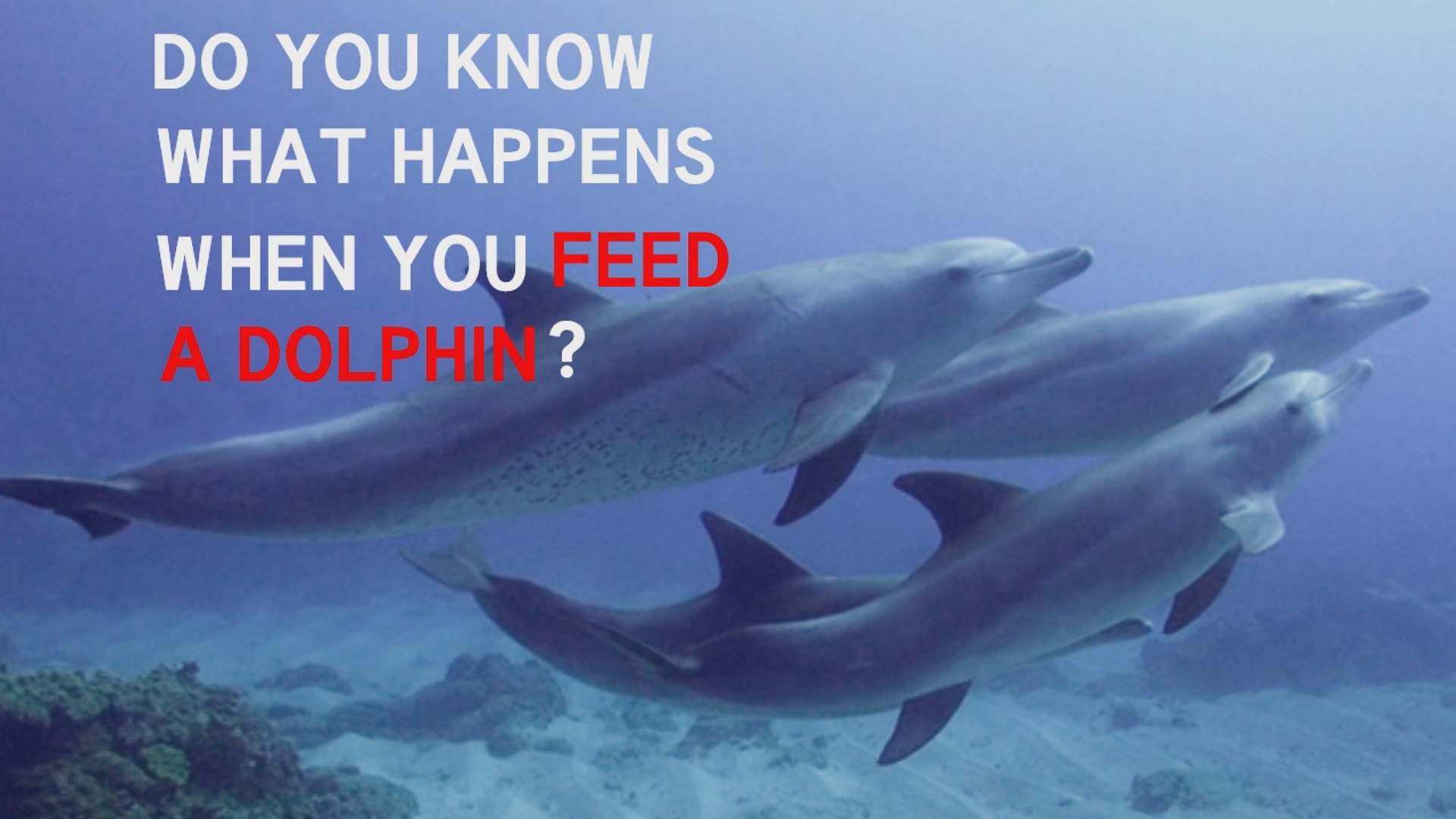(July 22, 2019) --

University Programs summer session students used what they learned in their Marine Mammals course to create PSAs on the dangers of hand-feeding dolphins. It’s the second year Dr. Jennifer Lewis has incorporated the project into the course.
“Science education should be about more than just memorizing and learning how to collect data,” Lewis explained. “It’s also about using it to move things forward. My goal is to give them the chance to really dig into a conservation issue, and then do something about it.”
The course covers marine mammals as a whole, including anatomy, physiology, behavior, and conservation/management. They also learn the laws, the research explaining why hand-feeding is a problem, and the conservation status of dolphins.
Then the students took what they learned to the streets to survey the public and see the issue directly by watching eco-tours and how dolphins react to bycatch of shrimp fisheries.
Lewis added, “Creating media to help educate the public about an issue, requires that the students have to really learn about the issue and thoroughly understand it. Creating something that can be used to enact change is a wonderful lesson because they take ownership and become invigorated when they have the power to actually do something.”
Since January, there have been several stranded dolphins with evidence of human interaction that may have contributed to their deaths.
“Unfortunately in Alabama, we see a high occurrence of human interaction with marine mammals,” says Mackenzie Russell, Stranding Coordinator for the Alabama Marine Mammal Stranding Network that responds to sick, injured, and deceased marine mammals in Alabama. “Human-dolphin interactions we see regularly include hand-feeding dolphins bycatch off the side of boats or people not stowing trash properly, which can lead to animals becoming entangled in fishing line or other debris. We strive to educate members of the public to never feed wild dolphins, stay at least 150 feet away from them, and never attempt to swim with wild dolphins. Dolphins are wild animals and we strive to keep them that way.”
Click here to download the ALMMSN tips sheet, Keep Wild Dolphins Wild. To report a sick, injured, or deceased marine mammal please call the 24/7 hotline at 877-WHALEHELP (942-5343).
Dr. Lewis is the director of the Tropical Dolphin Research Foundation.